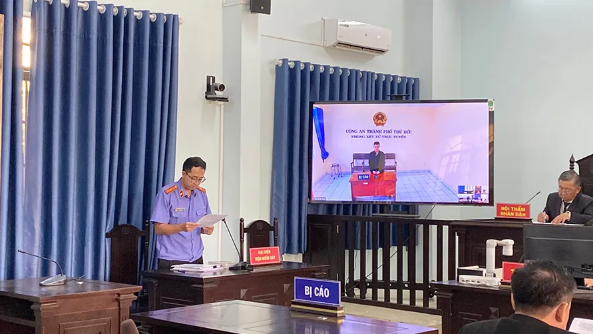Legal Action: The Right Path for Businesses Facing Online Defamation
Many companies have recently fallen victim to online smear campaigns. In such cases, instead of engaging emotionally or responding on social media, the proper and sustainable solution is to pursue legal remedies such as lawsuits, administrative complaints, or criminal reports.
Civil lawsuits and compensation claims
Under Vietnam’s Civil Code 2015, legal entities whose reputation or honor is infringed have the right to file lawsuits in court. Businesses can demand corrections, public apologies, and compensation for damages. Strong evidence, often notarized by bailiffs, is crucial. Economic loss and reputational harm are also key grounds for compensation.

This approach shows respect for the law and avoids perceptions that large businesses are abusing their power to silence critics.
Administrative measures
Enterprises may submit complaints to specialized authorities such as the Department of Information and Communications or the Authority of Broadcasting and Electronic Information. Under the Cybersecurity Law, Decree 15/2020, and Decree 14/2022, individuals spreading false information can face fines from 10 to 15 million VND and be forced to remove the content.
Criminal proceedings for serious cases
If the defamation is organized and causes severe harm, businesses may file reports with investigative agencies. Violators can be prosecuted for “defamation” (Article 156 of the Penal Code) or “abuse of democratic freedoms” (Article 331). However, criminal cases usually require lengthy investigations and trials, so businesses should evaluate carefully.
International practices
Globally, many jurisdictions enforce strong protections. The EU’s Digital Services Act (DSA) obliges tech platforms to remove false information. Singapore’s POFMA law allows authorities to issue correction and takedown orders. In China, companies like Tesla and BYD have successfully sued individuals spreading fabricated claims, securing public apologies and compensation.
Case studies in Vietnam
Vietnamese courts have also recognized corporate victims of online defamation. In 2022, the People’s Court of An Nhon (Binh Dinh) ordered a Facebook user to apologize and compensate a local business. In 2025, the People’s Court of Thu Duc City sentenced Trương Thanh Tịnh (Mr. Lee) to nine months in prison for posting false and defamatory content that damaged a company and its owner.
Conclusion
In the complex digital era, legal action is the most effective tool for businesses to protect themselves. Beyond safeguarding their interests, companies help set standards for a more transparent and civil online environment, ensuring fair competition and accountability under the law.
Ý kiến bạn đọc
Những tin mới hơn
Những tin cũ hơn
Luật sư Trần Đình Phúc: Người thầm lặng kiến tạo nên những giá trị bền vững tại Luật Nguyễn
Trong hành trình hơn 25 năm phát triển của Luật Nguyễn, bên cạnh những bước tiến mạnh mẽ và thành tựu đáng tự hào, không thể không nhắc đến những con người đã đặt nền móng và gắn bó trọn vẹn với sự nghiệp chung. Luật sư Trần Đình Phúc là một trong số ấy. 1. Người đồng hành từ những ngày đầu...
-
 Thông tư 200/2024: Hướng đi đột phá cho Kế toán Việt Nam – Tăng quyền tự chủ, tiệm cận Chuẩn mực Quốc tế
Thông tư 200/2024: Hướng đi đột phá cho Kế toán Việt Nam – Tăng quyền tự chủ, tiệm cận Chuẩn mực Quốc tế
-
 Tăng Gấp Đôi Mức Phạt Vi phạm Liên quan đến Thẻ Căn cước
Tăng Gấp Đôi Mức Phạt Vi phạm Liên quan đến Thẻ Căn cước
-
 Đề xuất Niêm phong Tang vật Vi phạm Hành chính: Hướng dẫn chi tiết Quy trình Bảo quản
Đề xuất Niêm phong Tang vật Vi phạm Hành chính: Hướng dẫn chi tiết Quy trình Bảo quản
-
 Đề xuất tăng ngưỡng kê khai tài sản chống tham nhũng lên 1 tỉ đồng
Đề xuất tăng ngưỡng kê khai tài sản chống tham nhũng lên 1 tỉ đồng
-
 NHNN Quyết Liệt "Ra Tay" Kiểm Soát Thị Trường Đôla "Chợ Đen" Trước Mức Chênh Lệch Kỷ Lục
NHNN Quyết Liệt "Ra Tay" Kiểm Soát Thị Trường Đôla "Chợ Đen" Trước Mức Chênh Lệch Kỷ Lục
- Đang truy cập143
- Hôm nay26,948
- Tháng hiện tại426,881
- Tổng lượt truy cập3,170,999
-
 Cập nhật địa chỉ trụ sở Công an cấp xã tại TPHCM sau sáp nhập
Cập nhật địa chỉ trụ sở Công an cấp xã tại TPHCM sau sáp nhập
-
 Thông tư 40/2021 :Quy định về nghĩa vụ thuế đối với hộ kinh doanh
Thông tư 40/2021 :Quy định về nghĩa vụ thuế đối với hộ kinh doanh
-
 Địa chỉ 19 Tòa án nhân dân (TAND) khu vực TP.HCM sau sáp nhập
Địa chỉ 19 Tòa án nhân dân (TAND) khu vực TP.HCM sau sáp nhập
-
 Hóa đơn GTGT xuất cho khách cá nhân có bắt buộc ghi CCCD?
Hóa đơn GTGT xuất cho khách cá nhân có bắt buộc ghi CCCD?
-
 Ngân 98 và lời khai trong vụ án sản xuất, buôn bán thực phẩm giả
Ngân 98 và lời khai trong vụ án sản xuất, buôn bán thực phẩm giả








